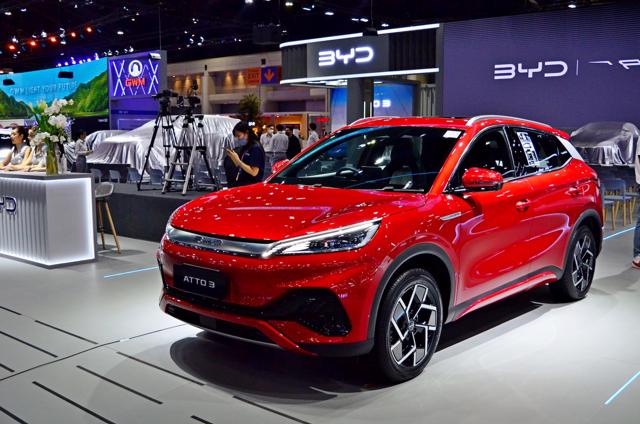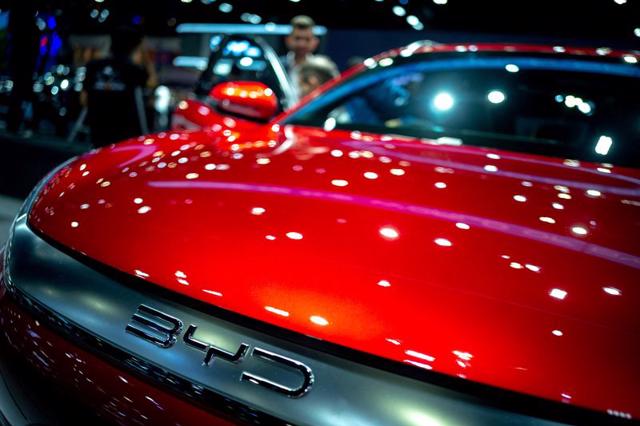
A source said the investment in Vietnam’s northern region will be more than $250 million, expanding parent company BYD Co’s presence in Vietnam, where the company’s manufacturing unit produces panels. solar battery.
The move underscores a broader trend of manufacturers reducing exposure to China amid trade tensions with the US and production disruptions caused by Beijing’s previous COVID-19 lockdowns cause.
The carmaker, based in Xi’an, outsold rival Tesla in electric vehicles by more than 2:1 in China last year, and expanded elsewhere in Asia, including Singapore , Japan and Europe.
Backed by billionaire investor Warren Buffett’s Berkshire Hathaway, BYD produces both plug-in-hybrid and pure electric vehicles. Like Tesla, BYD controls much of its supply chain, including battery production, a strategy that differentiates it from established automakers.
By investing in Vietnam, BYD is looking to add capacity, control costs and diversify production from operations in China, where demand is huge.
Negotiations are underway to choose a location for the Vietnamese factory, the sources said, declining to be named because the discussions are confidential. A source said that construction of the factory was scheduled to begin in the middle of this year.
It is unclear what parts BYD will make in Vietnam and whether it will include batteries or battery packs.
BYD’s planned investment and a $400 million project by digital display maker BOE reported by Reuters this past week would account for more than a quarter of the $2.5 million the companies China invested in Vietnam last year.
American corporations like Apple and their suppliers, such as Taiwan’s Foxconn and China’s Luxshare, are also looking for alternative manufacturing hubs, with neighboring Vietnam one of the options. choose main.
BYD is looking to lease 80 hectares of industrial land, more than doubling its footprint in Vietnam, where its manufacturing unit leases 60 hectares, a second source said.
Another source said the factory in Vietnam will export components for the assembly plant to be built in Thailand. Operations in Vietnam can also serve the local market, mainly through maintenance services and spare parts for BYD vehicles imported from China.
The appearance of BYD with a manufacturing plant in Vietnam is expected to pose a direct challenge to VinFast, a Vietnamese electric vehicle manufacturer that began selling cars in 2019 and plans to open expanded to America and Europe.

In December, the US Commerce Department found that units of BYD and other Chinese companies were circumventing decades-old US tariffs on Chinese batteries and solar panels.
If clarified next May, the US ruling means that those companies will have to pay taxes on products made in Vietnam and some other Southeast Asian countries.
Previously, in November 2022, China’s leading electric car manufacturing group BYD signed a contract with WHA, Thailand’s largest industrial real estate developer, to agree to buy 96 hectares of land. located in industrial real estate in Rayong province to build factory.
The 17.9 billion baht ($491.49 million) electric vehicle manufacturing project was approved by the Thai Board of Investment a few months earlier.
BYD aims to sell 10,000 units in Thailand and export to other Southeast Asian countries, even reaching the European market.
BYD also built 30 other factories in the US, Brazil and India. The new factory in Thailand is expected to produce Atto 3 all-electric products.
Thailand is the country chosen by the world’s leading car brands such as Toyota or Honda as an automobile production and export base. The Thai government in early 2022 also allocated a budget of about 43 billion baht until 2025 for efforts to promote demand for electric cars. At the same time, it offers many incentives such as tax reductions and subsidies to attract electric vehicle manufacturers and stimulate domestic consumption.

 Tiếng Việt
Tiếng Việt 한국어
한국어 中文 (中国)
中文 (中国)
